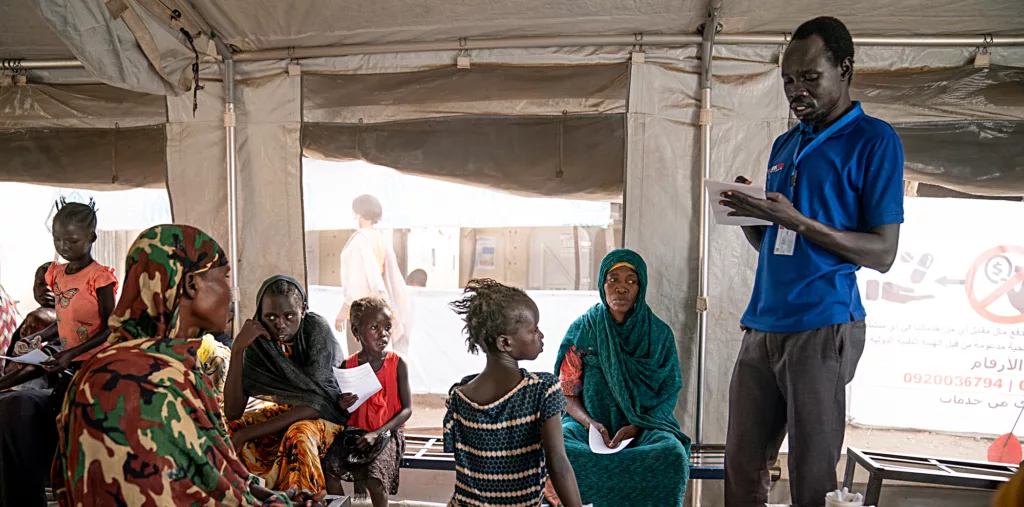On April 15, 2023, clashes between the Sudanese Armed Forces and the Rapid Support Forces erupted in Khartoum, the capital of Sudan. Over the past year, the fighting has spread nationwide, displacing about 8.2 million people inside and outside of Sudan, which now has the world’s largest number of displaced people and the most significant child-displacement crisis.
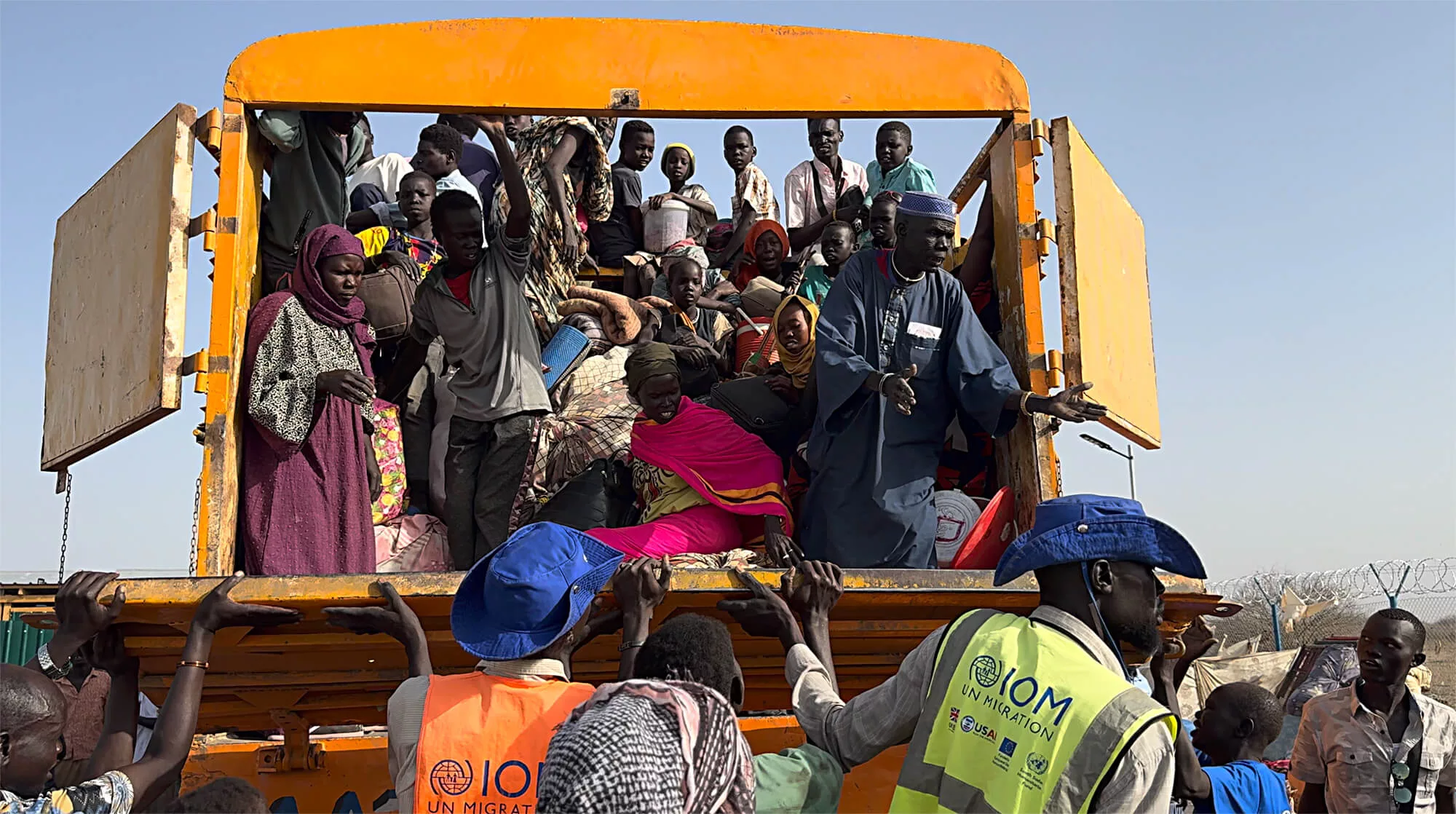
To help meet existing and emerging needs related to the conflict, we have an emergency response team stationed in the border town of Renk, South Sudan. International Medical Corps has worked in South Sudan since the mid-1990s, providing primary healthcare, maternal and child health services, mental health care, clinical management of rape, and prevention of and response to gender-based violence.
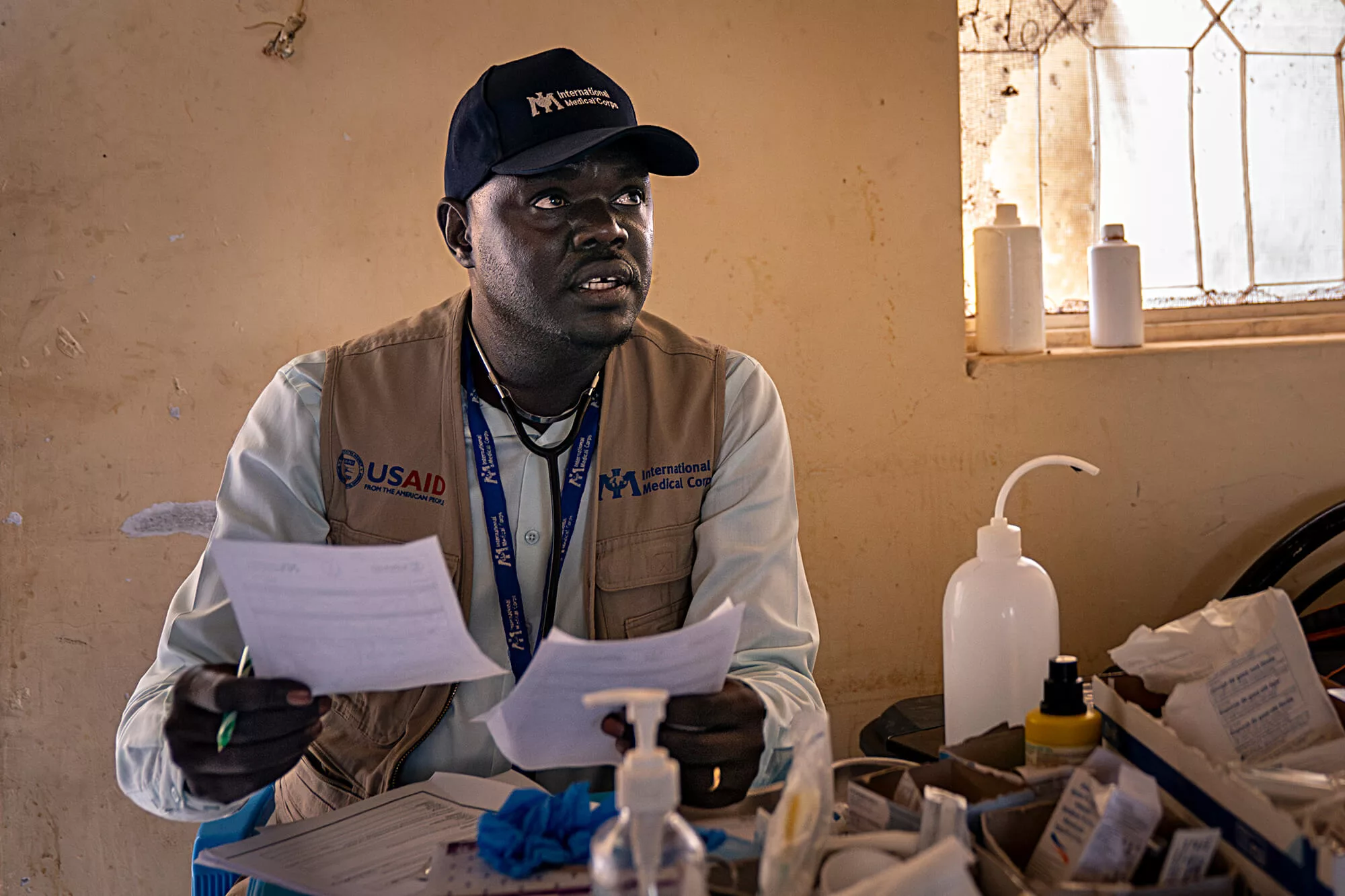
“Our team provides pre-travel health screening at a boat station in Renk and primary healthcare services in a health clinic at one of the transit centers,” explains Dr. William Marcello Nazario, Emergency Project Manager and the leader of International Medical Corps’ emergency response in Renk. “When returnees and refugees arrive, they register at one of the transit centers, and then they are seen at a health clinic. At the beginning of the conflict, our team was seeing about 2,000 patients per week. Now, one year into the conflict, due to the opening of another transit center and other health facilities, the number has been reduced to about 1,100 patients per week.”
In March, South Sudan experienced an extreme heat wave due to the ongoing climate crisis, causing power outages and school closures. The photos in this story were taken that month.
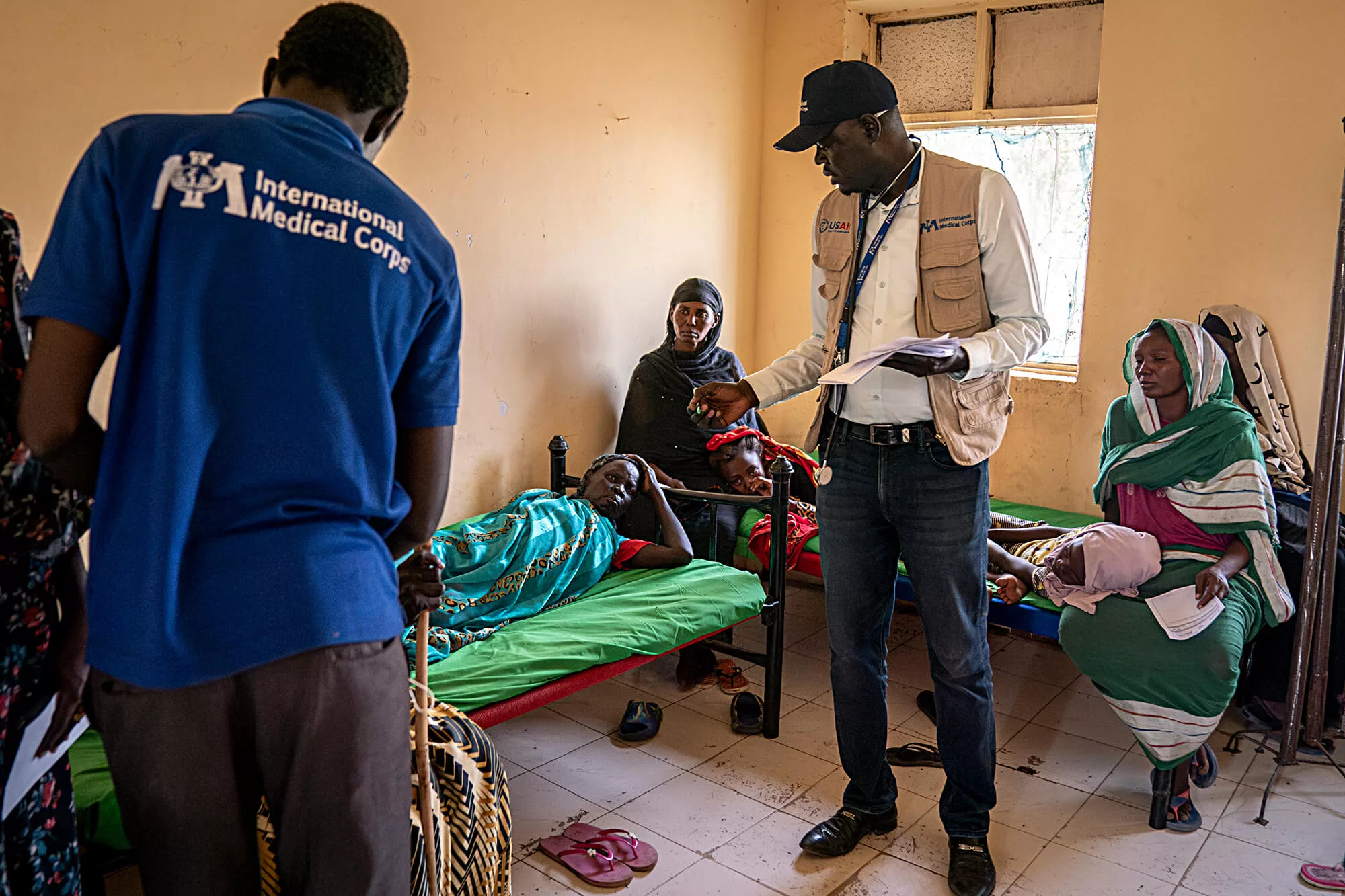
“When the patients arrive, they are in a diminished state,” Dr. William continues. “They have often traveled for weeks with little food or clean water. We’re here to receive them and help them stabilize. If they need additional healthcare services, like surgery, we refer them to Renk County Hospital. We’re also the only organization in Renk providing mental health services.”
Though the transit centers are designed for people to stay for approximately two weeks while they wait for transport assistance to help them move to their final destination, most displaced people stay there for months, as they have nowhere else to go. The vast majority of those displaced from Sudan are returnees—people who fled conflict in South Sudan to safety in Sudan and who now have been forced to return to South Sudan due to the war in Sudan.
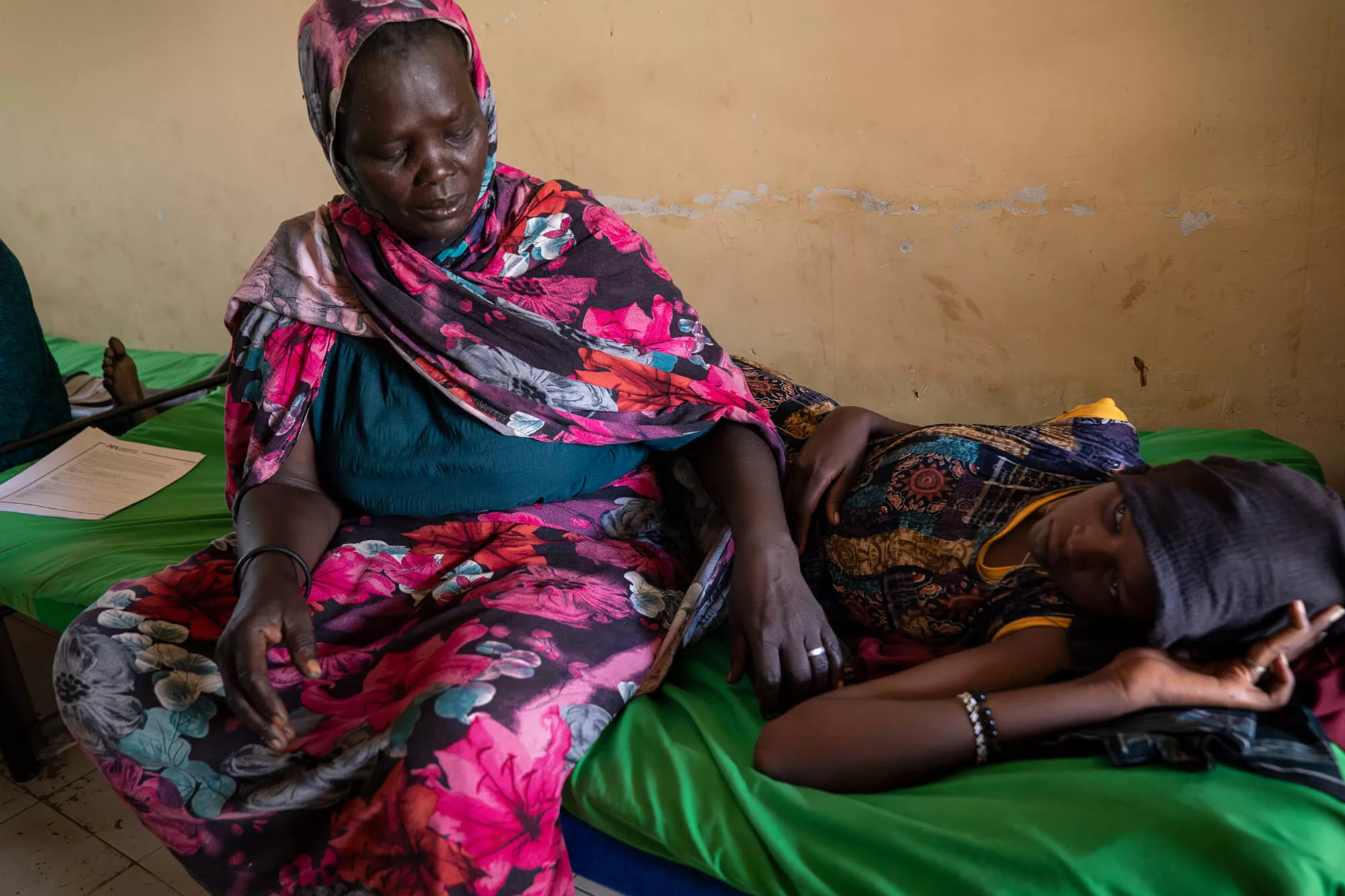
Nyabew Wechiang, 38 years old, and her 16-year-old daughter, Sabrina Abdulatif, have been living in the transit camp for two months. Nyabew is a returnee, originally from Upper Nile state in South Sudan, which she left in 1998. When the war in Sudan started, she and her family, including her nine children, fled from Khartoum. During this visit, Sabrina had a headache, fever, and body aches. Dr. William found that Nyabew had high blood pressure and ordered further tests.
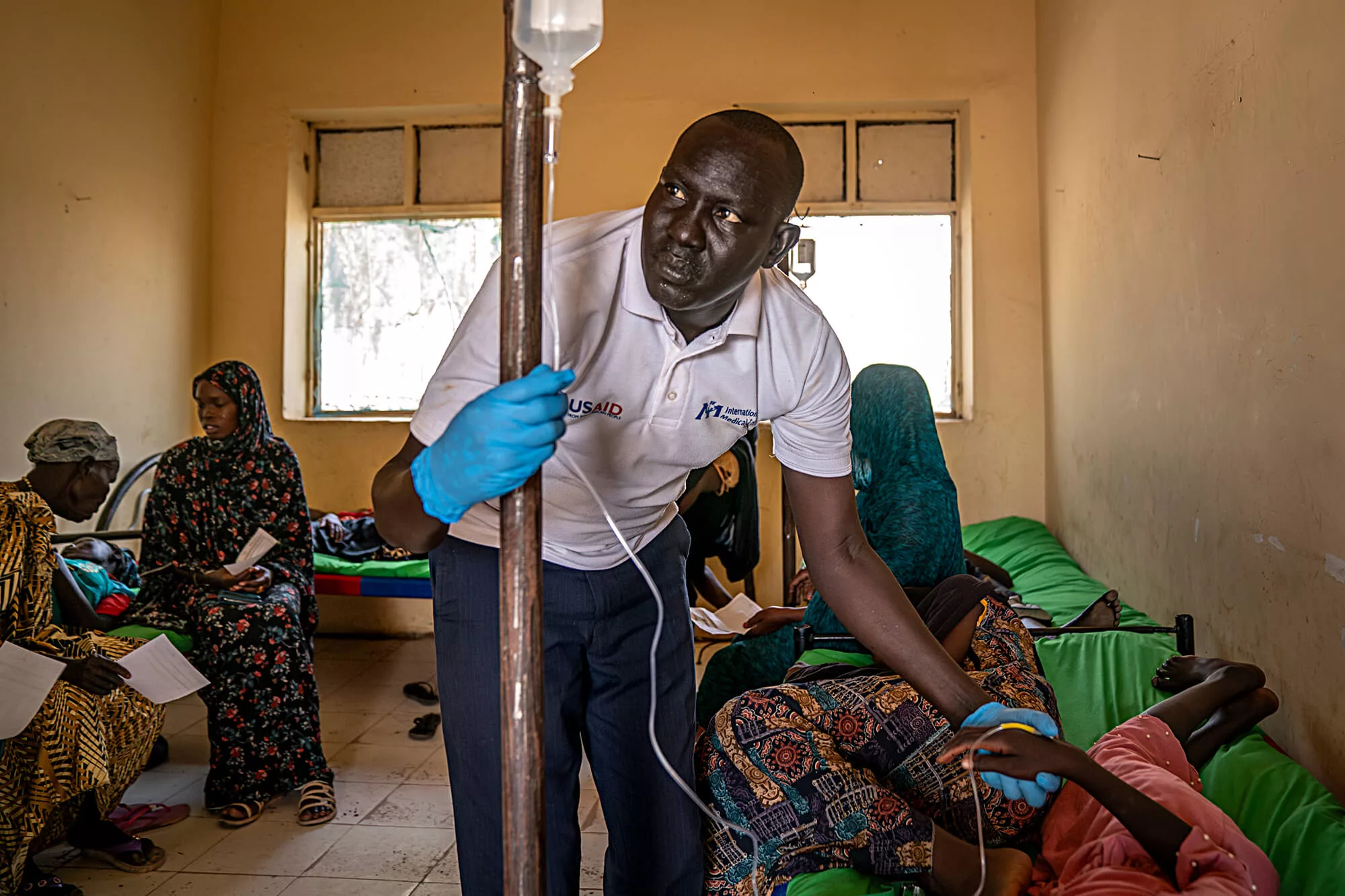
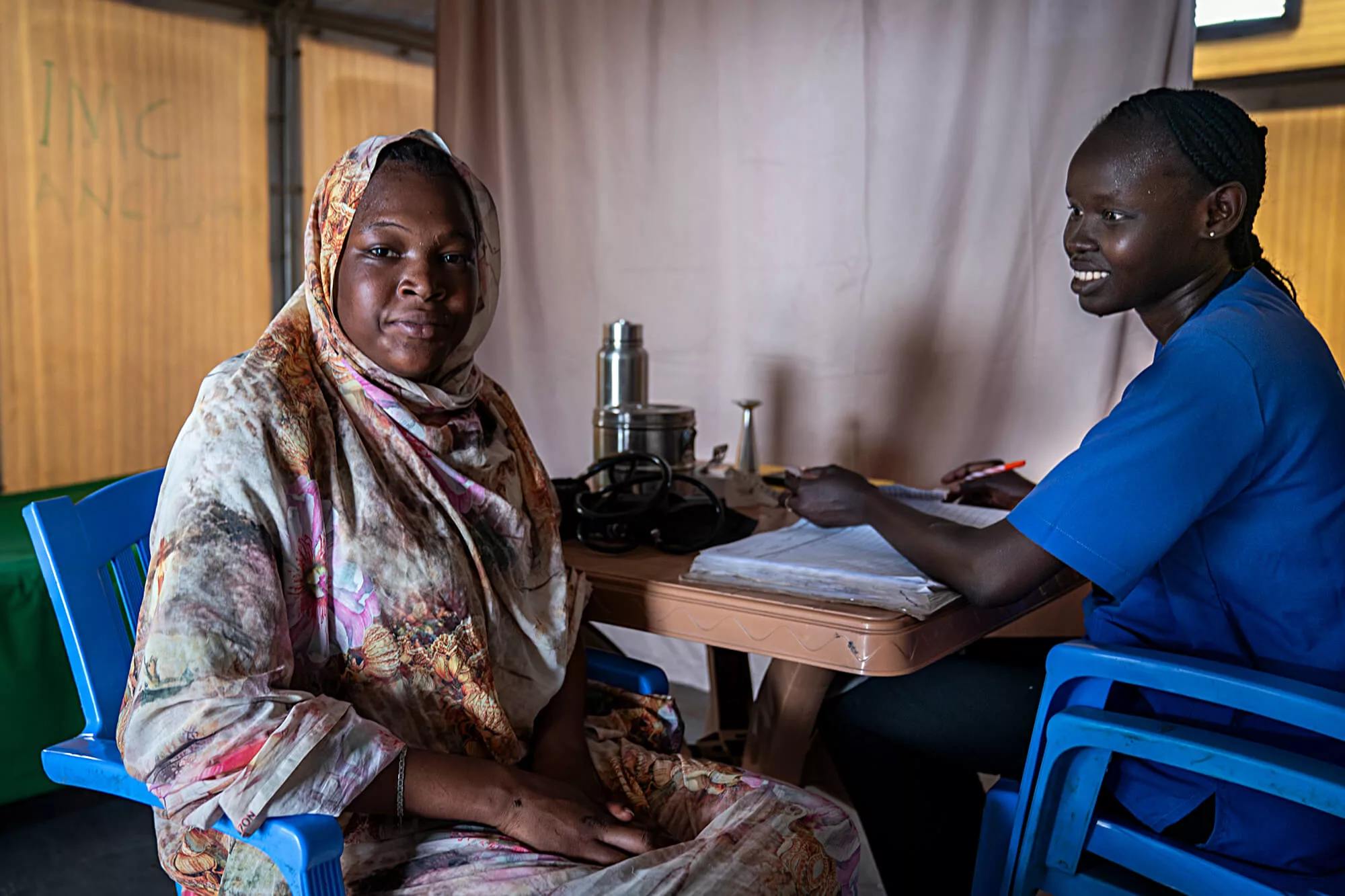
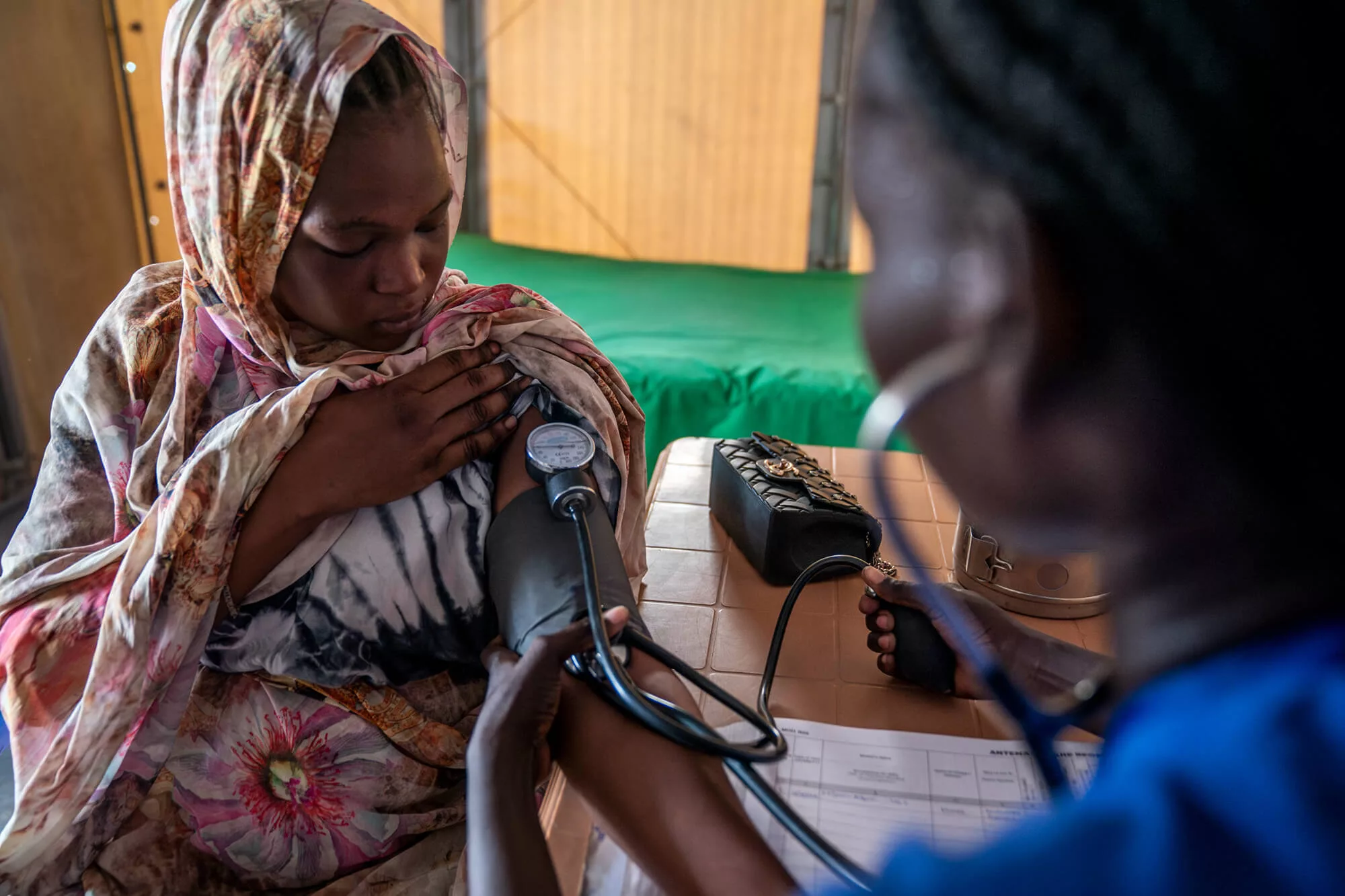
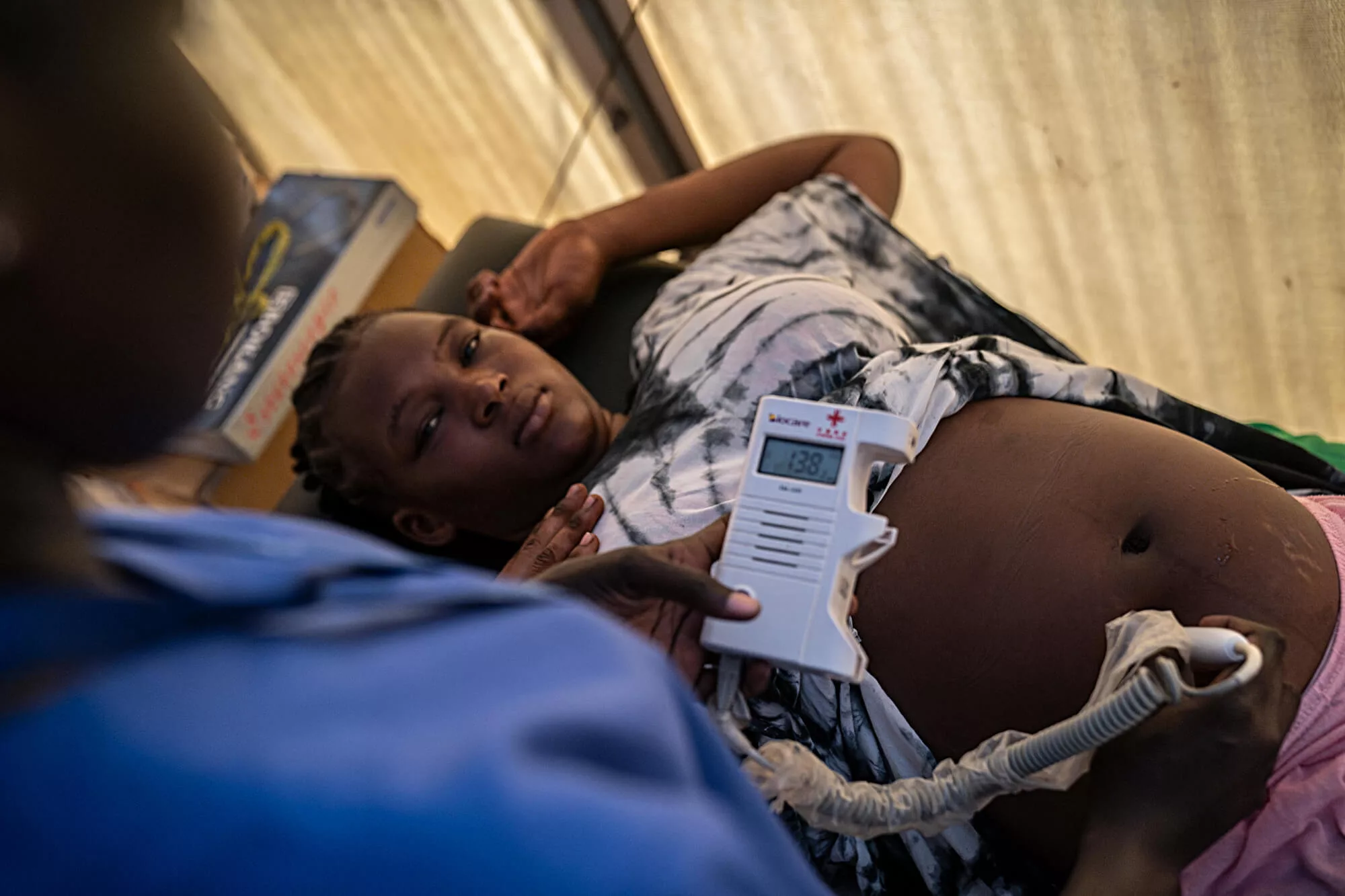
Nyakony Karar Akaydeng, 49, is a nurse who has been working as a vaccinator with International Medical Corps since she arrived in Renk nine months ago. She collects the vaccines from cold storage—which is run by the Renk County Health Department, with support from UNICEF and other partners—and brings them to the clinic.
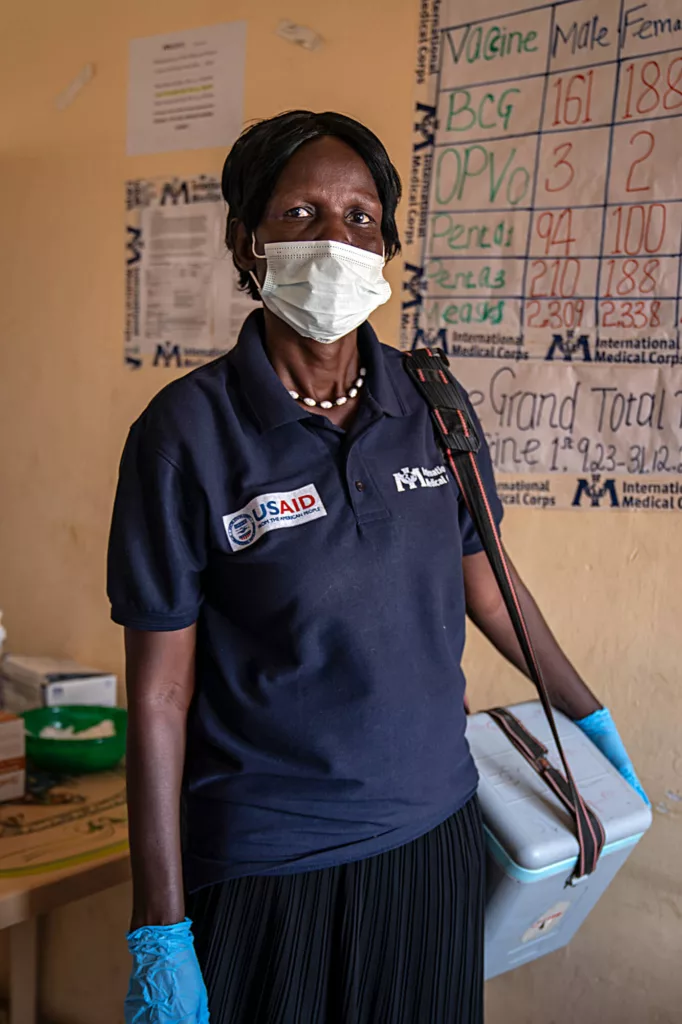
She talks to mothers in the triage area of the clinic about the benefits of vaccines for children and pregnant women, delivers messages about vaccination during awareness sessions to groups of people gathered in the transit center and vaccinates children under 9 months, as well as pregnant women. Nyakony says she loves her job.
“It’s about humanity, and it is a very good thing to help the little ones,” Nyakony explains. “It also helps the mothers—if the child falls ill, the mother will suffer as well.”
Nyakony is originally from Malakal, South Sudan, but left in 2014 due to conflict there. She was a refugee living in Kor Alwral camp in White Nile state, Sudan, when fighting began there. In August, she was forced to flee with her husband and six children. They crossed back into South Sudan and have been sheltering in Renk since then.
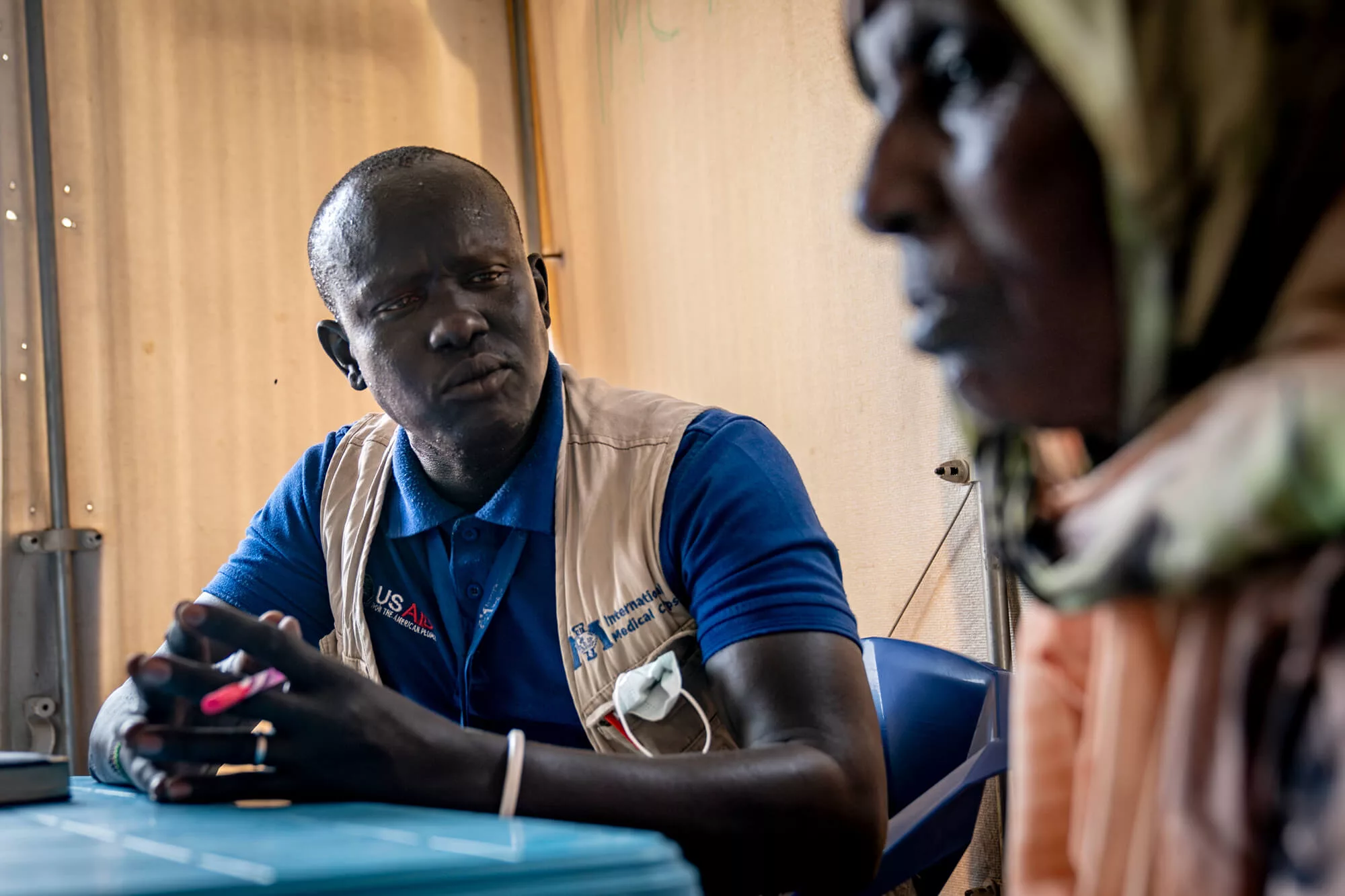
Though it has been challenging, our team continues to provide services at the clinic from 7:00 a.m. to 7:00 p.m., seven days a week, working in shifts. When our team leaves, a team from another international NGO runs the night shift—ensuring that patients at the transit center have access to healthcare services 24 hours per day.
“What gives us hope—what gives us joy—is to see patients at the end of receiving care,” says Dr. William. “They are able to smile, to walk on their own and some are able to say thank you. It is quite fulfilling. I’m proud to work with our dedicated team, providing health and hope to those fleeing violence.”
Learn more about our work in Sudan and South Sudan.
